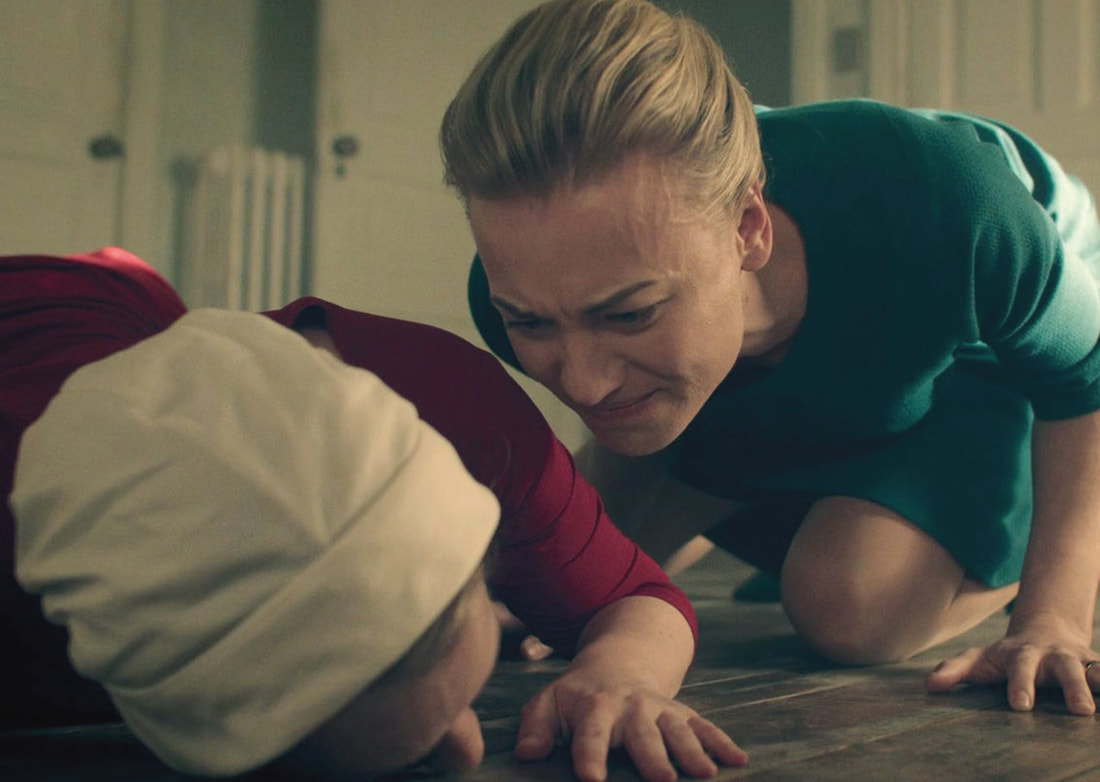ARTICLE / SHORT READCUT TO [wrath]
|
BY Hannah Lake
|
THE HANDMAID’S TALE (Hulu 2017-), a television adaptation of Margaret Atwood’s classic novel, caused controversy and shock following its release in April 2017. Set in a fictional post-revolutionary vision of America, this dystopian drama explores issues of gender, representation, power and religion. Having replaced the United States government, the setting of the Republic of Gilead provides the narrative with its primary antagonist: a Christian theocratic and totalitarian microcosm where its inhabitants live within a state of control, by both the state and their own minds.
Flashbacks reveal a world where the war on women’s rights was waged in the form of a violent religious coup d’état led by both men and women. The Sons of Jacob - a conspiratorial group based on a theocratic and patriarchal social structure - overthrew the United States government following high radiation levels that left many women infertile. The women that can bear children, known as “handmaids”, are expected to do so for those in power via ceremonial rape. Offred (Elizabeth Moss), a handmaid, is placed with the Waterford family because Serena Joy Waterford (Yvonne Strahovski), wife of Commander Fred Waterford (Joseph Fiennes), is unable to conceive. Serena played a large part in Gilead’s revolution but her involvement in the government was halted as a result of the new regime and she now spends her time pruning flowers in her greenhouse. Her character is one of the most complex in the wider narrative of the drama and her relationship with Offred is tense and often confusing. Her greatest desire is to have a baby but she is unable to do so without the help of her handmaid. She is bitter and full of resentment and anger, mostly directed at Offred. When Offred is pregnant, however, her priority becomes the baby, so her behaviour changes. She attempts to be kind to Offred, offering her more comfort at home. But, just when the audience begins to feel for Serena, they are reminded of the wider situation: that Offred is there against her will, is being forced to give up her biological child, and that Serena is only treating her better as she feels “it’s best for the baby”. Throughout the first series and into the second, Serena appears increasingly frustrated with the society she helped create but also with Offred for being able to do what she cannot. In this “new world”, the wives are oppressed and controlled under the patriarchal system. Although it is what Serena wanted, it appears she has some regrets. Simultaneously, Offred hates Serena for trapping her in such a horrific situation. Throughout the second series, interactions between the two women suggest that they clearly remember the time “before” and pine for it in different ways. Regardless of their current situation, it is unlikely that they would have liked each other back then either. Aunt Lydia (Ann Dowd) advises Commander Waterford, “the dynamics between a wife and a pregnant handmaid are always challenging but you have been blessed with a particularly wilful pair”. These two female protagonists display a complex relationship full of wrath with no end in sight. Unless they somehow find a common ground, one of them, and the morals they represent, must go. more WRATH >>> |


